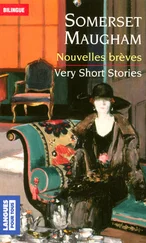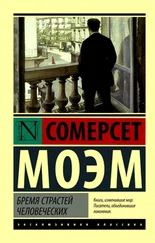| They would have a little house within sight of the sea, and he would watch the mighty ships passing to the lands he would never know. |
У них будет маленький домик у самого моря; сев у окна, он сможет смотреть на проходящие корабли - они поплывут в те страны, куда ему уже никогда не попасть. |
| Perhaps that was the wisest thing. |
А вдруг в этом-то и есть высшая мудрость? |
| Cronshaw had told him that the facts of life mattered nothing to him who by the power of fancy held in fee the twin realms of space and time. |
Кроншоу говорил, что счастлив тот, кто силой воображения подчиняет своей власти державных близнецов - пространство и время. |
| It was true. |
И он прав. |
| Forever wilt thou love and she be fair! |
"Навек твоя любовь, навек ее краса". |
| His wedding present to his wife would be all his high hopes. |
Свадебным подарком жене будут все его возвышенные мечты. |
| Self-sacrifice! |
Да, он принесет себя в жертву. |
| Philip was uplifted by its beauty, and all through the evening he thought of it. |
Филип был упоен красотой своего подвига и думал о нем весь вечер. |
| He was so excited that he could not read. |
Он так разволновался, что не смог читать. |
| He seemed to be driven out of his rooms into the streets, and he walked up and down Birdcage Walk, his heart throbbing with joy. He could hardly bear his impatience. |
Его потянуло из дома на улицу, и он зашагал по Бэрдкейдж-уок; на сердце у него было радостно, он был вне себя от нетерпения. |
| He wanted to see Sally's happiness when he made her his offer, and if it had not been so late he would have gone to her there and then. |
Ему хотелось поскорее увидеть, какое счастливое лицо будет у Салли, когда она услышит предложение; если бы не было так поздно, он побежал бы к ней не мешкая. |
| He pictured to himself the long evenings he would spend with Sally in the cosy sitting-room, the blinds undrawn so that they could watch the sea; he with his books, while she bent over her work, and the shaded lamp made her sweet face more fair. |
Он рисовал себе долгие вечера, которые они будут просиживать с ней в уютной гостиной -шторы они не опустят, чтобы можно было видеть море,- он с книгой, она с шитьем в руках; тень от абажура сделает ее милое лицо еще красивее. |
| They would talk over the growing child, and when she turned her eyes to his there was in them the light of love. |
Они вместе будут растить своего ребенка, а когда ее глаза встретятся с его глазами, он увидит в них сияние любви. |
| And the fishermen and their wives who were his patients would come to feel a great affection for them, and they in their turn would enter into the pleasures and pains of those simple lives. |
Рыбаки с их женами, которых он будет лечить, очень к ним привяжутся, а они с Салли в свою очередь разделят с этими простыми людьми их радости и горести. |
| But his thoughts returned to the son who would be his and hers. |
Но мысли его все время возвращались к сыну -его ребенку и ее. |
| Already he felt in himself a passionate devotion to it. |
Он уже чувствовал к этому ребенку страстную привязанность. |
| He thought of passing his hands over his little perfect limbs, he knew he would be beautiful; and he would make over to him all his dreams of a rich and varied life. |
Мысленно он гладил его стройные ножки; он знал, что ребенок будет красивым; он передаст ему по наследству все свои мечты о богатой, бурной жизни. |
| And thinking over the long pilgrimage of his past he accepted it joyfully. |
И, вспоминая долгий искус своей юности, он принимал его без сожаления. |
| He accepted the deformity which had made life so hard for him; he knew that it had warped his character, but now he saw also that by reason of it he had acquired that power of introspection which had given him so much delight. |
Он принимал свое уродство, которое так калечило его жизнь; он знал, что оно ожесточило его душу, но именно благодаря ему он приобрел благотворную способность к самопознанию. |
| Without it he would never have had his keen appreciation of beauty, his passion for art and literature, and his interest in the varied spectacle of life. |
Без нее он не мог бы так остро ощущать красоту, страстно любить искусство и литературу, взволнованно следить за сложной драмой жизни. |
| The ridicule and the contempt which had so often been heaped upon him had turned his mind inward and called forth those flowers which he felt would never lose their fragrance. |
Издевки и презрение, которым он подвергался, заставили его углубиться в себя и вырастили цветы - теперь уже они никогда не утратят своего аромата. |
| Then he saw that the normal was the rarest thing in the world. |
Он понял, что гармония, совершенство -редчайшее явление на свете. |
| Everyone had some defect, of body or of mind: he thought of all the people he had known (the whole world was like a sick-house, and there was no rhyme or reason in it), he saw a long procession, deformed in body and warped in mind, some with illness of the flesh, weak hearts or weak lungs, and some with illness of the spirit, languor of will, or a craving for liquor. |
У каждого - свой недостаток, телесный или духовный; он перебрал в памяти всех, кого знал (весь мир - это больница, тщетно искать в нем гармонии): перед его мысленным взором прошла вереница изуродованных тел, искалеченных душ, больных физически - сердцем или легкими, больных психически - с атрофией воли, со страстью к алкоголю. |
| At this moment he could feel a holy compassion for them all. |
Его охватило глубочайшее сострадание к ним всем. |
| They were the helpless instruments of blind chance. |
Они ведь были беспомощными орудиями слепого случая. |
| He could pardon Griffiths for his treachery and Mildred for the pain she had caused him. |
Он прощал Гриффитсу его предательство и Милдред - муки, которые она ему причинила. |
| They could not help themselves. |
Что они могли с собой поделать? |
| The only reasonable thing was to accept the good of men and be patient with their faults. |
Мудрость в том, чтобы брать от людей хорошее и быть терпимым к дурному. |
| The words of the dying God crossed his memory: |
В памяти его возникли слова умирающего бога: |
| Forgive them, for they know not what they do. |
"Прости им, ибо не ведают, что творят". |
| CXXII |
ГЛАВА 122 |
| He had arranged to meet Sally on Saturday in the National Gallery. |
Филип договорился с Салли встретиться в субботу в Национальной галерее. |
| She was to come there as soon as she was released from the shop and had agreed to lunch with him. |
Она должна была прийти сразу же, как освободится в мастерской, и пообедать с ним. |
| Two days had passed since he had seen her, and his exultation had not left him for a moment. |
Филип не видел ее уже два дня, но состояние душевного подъема не оставляло его ни на минуту. |
| It was because he rejoiced in the feeling that he had not attempted to see her. |
Его так радовало это чувство, что он и не пытался увидеть Салли пораньше. |
| He had repeated to himself exactly what he would say to her and how he should say it. |
Он сотни раз твердил себе, что? он ей скажет и как он ей это скажет. |

![Уильям Макгиверн - Завтра опять неизвестность [английский и русский параллельные тексты]](/books/35168/uilyam-makgivern-zavtra-opyat-neizvestnost-angli-thumb.webp)


